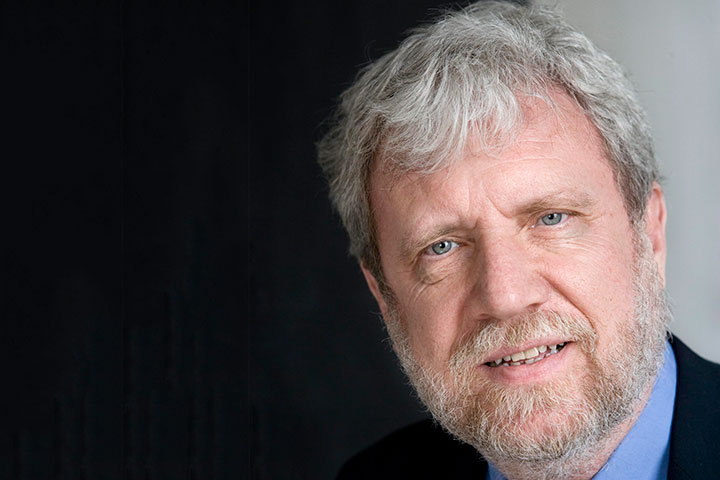
So, how are your 2017 resolutions going?
If one of your goals is to further develop a skill — maybe something that will help you do your job with more expertise, or perhaps you finally want to run that marathon — then a Florida State University professor has tips that could help you succeed in 2017 rather than having to try again next year.
Psychology Professor Anders Ericsson, FSU’s Conradi Eminent Scholar — who’s known as the world’s foremost “expert on expertise” — has written a book getting a lot of attention in the new year as a useful resource that could help you change your life this year.
Ericsson has spent more than 30 years researching the science of elite performance among athletes, chess players, musicians, novelists, doctors, and the list goes on. All that research has led him to the fascinating conclusion that everyone has what it takes to improve and, in many cases, even master a skill by pursuing particular types of practice.
That’s a key point. You don’t reach peak performance just by putting in more hours practicing or being highly motivated to improve. Even possessing an innate talent is not a surefire predictor of success. You need the right formula to guide you to your goal.
“This idea that you are genetically programmed and there’s a plan for you to do a certain thing, I think that’s really misleading,” Ericsson said, “because it means you just have to find that talent and you don’t have to transform yourself to be successful.”
Ericsson and co-author Robert Pool spell out how to transform yourself to be successful in his new book, “Peak: Secrets from the New Science of Expertise.” Those secrets, boiled down, are essentially an approach called “deliberate practice.” It’s a teacher-guided process including these steps:
- Study people who’ve already achieved your goal
- Enlist a coach or mentor to train you
- Set clear goals
- Get out of your comfort zone by trying things you currently can’t do
Ericsson concedes there are two genetic differences that cannot be changed by deliberate practice — body size and height — so people with those attributes have an innate advantage for tasks requiring those traits. Even intelligence, research shows, is not a good predictor of expertise. High IQ may help a person quickly understand the basics of a task, but it takes a lot of work — a lot of deliberate and purposeful practice — to achieve peak performance.
“I reviewed cognitive tests and how predictive they were of various levels of performance, music for example,” Ericsson explained. “When you start playing music, there is a correlation with IQ tests. If you score well on those, then you are more rapidly able to get started. But the interesting thing is, if you look at individuals who are highly skilled in music, then you don’t see any relation between their attained performance and IQ.”
Ericsson’s research has captured the attention of people all over the world. For example, the health care industry looks to the research for answers on how to minimize the learning curve between experienced and novice surgeons or radiologists.
In education, Ericsson is looking for scientifically valid ways to identify superior teachers. In the past, teachers were judged as better — and paid better — if they earned more degrees or received more training. That’s true in other professions too, but the latest research shows those measures have flaws.
“There is a very large body of research showing the more advanced degrees you have as a K-12 teacher do not predict the ability of students to learn from you,” Ericsson said.
“There’s also a lot of research on psychotherapists, where if you look at whether their patients improved to the point they could end treatment, you find having a Ph.D. or many years of extra training is not associated with better outcomes for patients. Literature shows that continuing education conferences, which medical doctors have to attend to maintain their certification, has no observable impact on what they do in their practice.”
Ericsson’s approach to measuring expertise starts with finding people who consistently outperform others at a task, having them think out loud as they demonstrate the skill and then examining their developmental history to measure what they did differently to get to the highest levels of their profession.
What that approach has yielded over decades of research is a series of practices that sometimes may seem counterintuitive, but Ericsson believes they can help most anyone master a task or goal.
“A key to deliberate practice is that you’re actually working with a teacher who has been teaching others how to reach this level,” Ericsson explained. “So it’s actually the teacher who knows the path and can tell you, ‘Focus on this. The way you master this technique, whether it’s surgery or a musical instrument, is to do this training.’”
Likewise, that’s how you can master those challenging 2017 New Year’s resolutions. About 25 percent of Americans who make resolutions don’t maintain them through the first week, according to a report in the Journal of Clinical Psychology. After six months, the percentage of failed resolutions jumps to nearly 60 percent.
The path to a great achievement is difficult, but Ericsson’s research points to consistent, focused practice and guidance from a coach or teacher as the best way to get there.
“The fundamental idea is to identify those people who have been able to make it,” he said, “and learn about the path they took to get to the point that you’re striving to get to.




